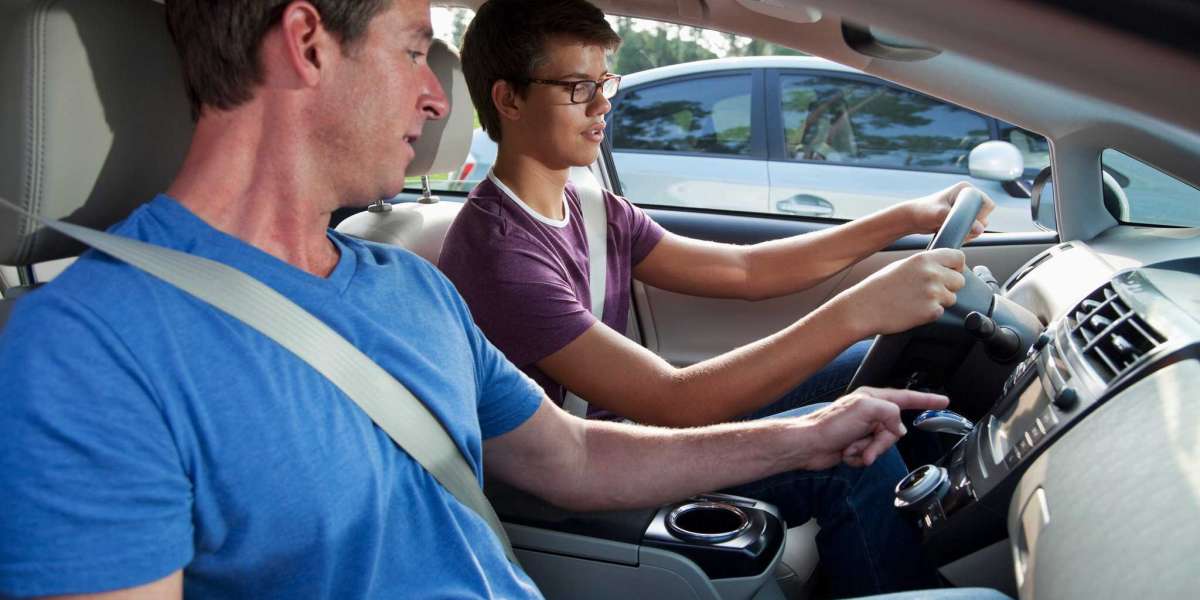Learning to drive goes beyond understanding road signs and passing the theory test—it requires real-world experience behind the wheel. Practical training is the cornerstone of any driving program, and driving schools in Manchester emphasize it to ensure learners gain the skills and confidence to navigate the city’s bustling streets. Here’s why practical training is so essential for new drivers in Manchester.
1. Building Real-World Confidence
Practical training allows learners to experience real-world driving scenarios that can’t be replicated in a classroom. This hands-on approach helps:
- Boost Confidence: Gain familiarity with the car and traffic conditions.
- Reduce Nervousness: Overcome the fear of driving on busy roads.
- Develop Independence: Transition from guided learning to confident solo driving.
2. Navigating Manchester’s Complex Road Network
Manchester is home to diverse road conditions, including busy urban streets, multi-lane roundabouts, and tram crossings. Practical training equips learners to:
- Handle Roundabouts: Navigate challenging intersections like the Mancunian Way with proper signaling and lane discipline.
- Drive Safely Around Trams: Understand tram priority rules and shared road spaces.
- Adapt to City Layouts: Learn to navigate one-way streets and narrow residential roads.
3. Improving Hazard Awareness
Practical lessons teach learners to recognize and respond to potential hazards in real-time. This is crucial for driving safely in Manchester, where:
- Pedestrian Zones: Areas like Piccadilly Gardens require extra vigilance.
- Cyclists and Buses: Busy city streets often have dedicated bus and cycle lanes.
- Unpredictable Traffic: Learners must adapt to sudden stops, merging vehicles, and roadworks.
4. Mastering Essential Driving Skills
Practical training focuses on developing key skills that are fundamental to safe driving, such as:
- Clutch Control and Gear Changes: Crucial for manual car learners in stop-start traffic.
- Parking Techniques: Practice parallel and bay parking in tight urban spaces.
- Smooth Braking and Acceleration: Learn to maintain control and avoid jerky movements.
5. Preparing for Test Routes
Driving schools in Manchester integrate practice on local test routes to ensure learners are test-ready. These routes often include:
- High-Traffic Areas: Familiarity with roads near test centers like Sale or Cheetham Hill.
- Diverse Scenarios: Practice on dual carriageways, residential streets, and busy junctions.
- Mock Tests: Simulate the practical exam to identify and improve weak areas.
6. Adapting to Varied Weather Conditions
Manchester’s weather can be unpredictable, and practical training prepares learners to handle different conditions, such as:
- Rain: Practice maintaining visibility and adjusting braking distances.
- Fog: Learn to use headlights and navigate low-visibility situations.
- Sun Glare: Understand techniques to reduce glare and maintain focus.
7. Learning Defensive Driving
Defensive driving is a critical skill taught through practical lessons. Learners are trained to:
- Anticipate Hazards: Stay alert to the actions of other drivers, pedestrians, and cyclists.
- Maintain Safe Distances: Prevent accidents by keeping adequate space from other vehicles.
- React Calmly: Handle emergencies or sudden changes in traffic flow effectively.
8. Enhancing Decision-Making Skills
Practical training forces learners to make quick, informed decisions on the road. This is especially important in Manchester, where:
- Tram Crossings: Drivers must prioritize trams while ensuring pedestrian safety.
- Busy Roundabouts: Learners must choose lanes and exits accurately.
- Urban Traffic: Decision-making is crucial when merging or navigating congested streets.
9. Integrating Theory and Practice
While theory provides the foundation for understanding road rules, practical lessons allow learners to:
- Apply Theory in Real Scenarios: Reinforce knowledge of traffic signs and right-of-way rules.
- Understand Context: Learn how theoretical principles translate to everyday driving.
- Improve Retention: Practical application helps learners remember and internalize concepts.
10. Adapting to Night and Evening Driving
Practical training often includes sessions during evenings or in low-light conditions to prepare learners for:
- Night Driving: Use of headlights and navigation in reduced visibility.
- Rush Hour Traffic: Managing congestion during peak commuting times.
- Different Road Environments: Gain experience in both quiet residential areas and busy city centers.
11. Developing Safe Driving Habits
Practical lessons emphasize the importance of forming good driving habits early, including:
- Consistent Mirror Checks: Maintaining awareness of surrounding traffic.
- Proper Signaling: Communicating intentions clearly to other road users.
- Maintaining Speed Limits: Adapting to varying speed requirements in residential, urban, and rural areas.
12. Building Resilience in Challenging Scenarios
Practical training exposes learners to unexpected situations, helping them develop resilience and adaptability. For example:
- Roadworks and Diversions: Learn to navigate alternate routes confidently.
- Unexpected Hazards: Handle situations like sudden braking or erratic drivers.
- Stressful Intersections: Build composure in high-pressure scenarios like multi-lane junctions.
13. Preparing for Real-Life Driving After the Test
Passing the test is just the beginning. Practical training prepares learners for everyday driving needs, such as:
- Commuting to Work or School: Manage rush-hour traffic efficiently.
- Running Errands: Navigate parking lots and high-traffic commercial areas.
- Longer Journeys: Gain confidence on motorways and rural roads.
14. Boosting Test Success Rates
Learners who focus on practical training are more likely to pass their driving test on the first attempt. This is because:
- Test Scenarios are Covered: Familiarity with local test routes reduces surprises.
- Confidence is Built Gradually: Learners feel prepared to handle the challenges of the test.
- Skills are Fine-Tuned: Regular practice eliminates weak areas before test day.
15. Encouraging Lifelong Safe Driving
The ultimate goal of practical training is to produce skilled and responsible drivers. By emphasizing hands-on experience, driving schools in Manchester ensure learners are equipped to:
- Drive Responsibly: Prioritize safety for themselves and others on the road.
- Adapt to New Situations: Handle unfamiliar roads and conditions confidently.
- Reduce Accident Risks: Apply defensive driving techniques to prevent collisions.
Final Thoughts
Practical training is the backbone of effective driving education, especially in a dynamic city like Manchester. By focusing on real-world skills, driving schools in Manchester ensure learners are not only prepared for their driving test but also equipped to handle the complexities of everyday driving. Whether it’s mastering roundabouts, navigating tram crossings, or driving in unpredictable weather, practical lessons are the key to becoming a confident and competent driver. Start your driving journey today with a school that prioritizes hands-on training!
Impulse Driving School provides expert driving school manchester lessons with ADI-approved instructors. Pass your test in just 4 weeks. Book now to start your driving journey!














